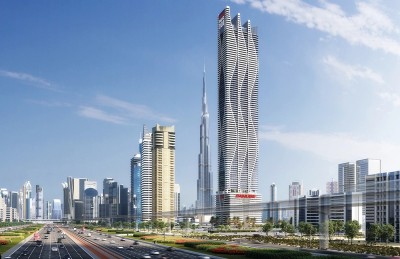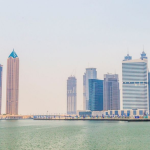
Guide for Prospective Property Buyers: Key Investment Considerations in Dubai's Real Estate Market
Purchasing property in Dubai is not just an investment; it's a journey into one of the world's most dynamic real estate markets. Dubai attracts investors globally with its stunning skyscrapers, luxurious lifestyle, and strategic location. However, diving into this market requires more than a financial commitment; it demands a thorough understanding of various factors to ensure a wise investment. This guide aims to illuminate the key aspects every potential property buyer should consider when investing in Dubai's vibrant real estate landscape.
Understanding the Dubai Real Estate Market
The real estate market in Dubai is as diverse as it is dynamic. Over the past decade, it has seen significant fluctuations influenced by global economic trends, oil prices, and regional developments. Currently, the market is up, with property prices gradually stabilizing and even increasing in sought-after areas.
Investors should keep an eye on market trends, such as the rising demand for certain property types or the emerging hotspots in the city. Understanding these trends can offer insights into the potential long-term value of your investment. Additionally, staying informed about the broader economic conditions that affect the Dubai real estate market , including government policies and international investor sentiment, is crucial for making an informed decision.
Legal and Regulatory Considerations
Navigating the legal landscape of Dubai's real estate market is essential. The city offers various ownership options, including freehold and leasehold properties, with specific laws governing each. For foreign investors, understanding these distinctions is crucial. Freehold properties offer full ownership rights, whereas leasehold properties involve leasing from a freeholder for up to 99 years. Explore Key Consideration of Tenancy Agreement Renewal .
It's also important to be aware of your property purchase's visa and residency implications, as Dubai offers residency visas to international investors under certain conditions. Always consult with a legal expert to understand the nuances of Dubai's property laws to ensure compliance and safeguard your investment.
Location and Property Types
When investing in Dubai, location is a pivotal factor. Areas like Downtown Dubai, Palm Jumeirah, and Dubai Marina are perennial favorites for luxury living while emerging neighborhoods offer potential for growth. Each location has its unique appeal, amenities, and community vibe, so it's essential to consider your lifestyle preferences or rental market demands.
Don’t forget to read: Pros and Cons of Living in Palm Jumeirah
Furthermore, Dubai's property landscape offers many options, from high-rise apartments and penthouses to sprawling villas and townhouses. Your choice should align with your budget and your long-term investment strategy, whether it's rental yield or capital appreciation.
Financial Planning and Budgeting
Budgeting for a property in Dubai extends beyond the purchase price. Prospective buyers should account for additional expenses such as registration fees, broker commissions, and possible mortgage costs if financing the purchase. The good news is that Dubai's real estate market offers various financing options, including mortgages available to residents and non-residents.
Understand: How to Become a Real Estate Agent in Dubai
Understanding the nuances of these financial products and their implications is vital. It's also wise to consider the ongoing costs, such as service charges and maintenance fees, which can vary significantly depending on the type and location of the property.
Additional Costs and Considerations
Investing in Dubai's real estate is not just about the initial purchase but also the ongoing costs. Maintenance fees, service charges, and insurance are ongoing expenses that can impact your overall investment return. Furthermore, it's crucial to consider property management, especially if you're an overseas investor. Many opt for professional property management services to handle maintenance, tenant relations, and other administrative tasks, ensuring their investment remains hassle-free.
Conclusion
Investing in Dubai's real estate market can be lucrative, but it requires careful consideration of various factors. From understanding market dynamics and legal frameworks to evaluating financial implications and additional costs, each aspect plays a crucial role in making a successful investment. As with any significant financial decision, thorough research and professional advice are indispensable. By considering these key factors, you can confidently navigate Dubai real estate's vibrant world with confidence, making informed decisions that align with your investment goals.






